African Institute of Maths Sciences
Experiences and opportunities for statistics capacity building in Africa
The main AIMS programmes are one year courses, which aim to prepare African graduates with mathematically-based degrees for further post-graduate study or mathematics teaching.
The Sustainable Development Goals require good data collection and analysis.
Introduction
In January 2024, I was delighted to be able to teach in person at AIMS Cameroon, for the fifth time. Prof Julia Mortera and I have co-ordinated our teaching there since 2019. This is part of cooperation between the Royal Statistical Society and AIMS Cameroon on a statistics and data science stream in the Structured Masters courses.
In October 2015 and November 2016, I spent three weeks by the Indian Ocean, at AIMS Tanzania, teaching probability and statistics. AIMS is a network of centres for tertiary mathematical education and research, founded in order to build capacity for African initiatives in education, research, and technology. Following the success of AIMS South Africa (2003), AIMS Senegal opened in 2011, AIMS Ghana in 2013, AIMS Cameroon in 2013, AIMS Tanzania in 2014 and AIMS Rwanda in 2016. These are self-contained residential centres with excellent computer and lecturing facilities. The libraries are developing; I brought several books for the libraries, and there is usually a budget for each course.
The main AIMS programme is a year's course, which intended to prepare African graduates with mathematically-based degrees for post-graduate study in, for example, South Africa, Belgium, UK or North America. There are introductory courses, and then a series of 6 three-week blocks in which students choose two out of three courses. All courses are taught by visiting lecturers, often major international figures, with volunteers from Europe and North America as well as Africa. Lecture courses consist of 30 hours contact time (10 per week), about 15 to 18 hours lecturing and 12 to 15 hours for tutorial work. Tutors assist with tutorials and do the marking. I have worked with Zimbabwean, Ethiopian, British, Kenyan and Ghanaian tutors.
The focus and the need
The founders, Neil Turok and Fritz Hahne, are mathematical physicists, and their section of mathematical sciences is well represented. Mathematical finance and mathematical biology are also offered.
It would be very good to have a probability and statistics skills course at each centre, and several review courses. Courses on statistical inference, linear modelling, design of experiments and observational studies, Bayesian decision analysis and statistics, generalised linear modelling, and stochastic processes, multivariate analysis would be valued.
Will there be volunteers so that all centres can offer this introduction? It would be even better if there were sufficient offers for there to be a statistics or probability course on offer in each of the six review blocks. AIMS Cameroon includes agriculture, environment and health as application areas. The students are very eager to do their dissertations in applied statistics, or to be able to collaborate with experienced statistical scientists. And when you pack, as well as books, bring resilience and a sense of humour!
If you cannot travel, you can still contribute by offering to supervise an M.Sc. dissertation.
My experiences of AIMS
Students at AIMS are selected from many African countries, and have often struggled to get an education in countries where only primary education is mandatory. They are often older than UK graduates, leave families behind, and try to save their allowances to send home. Motivation and commitment is high, and as the centre is fully residential, students can work in the library or computer laboratory at any time: I often noticed many people in the lab as I went upstairs to my bedroom. As women are often expected, in Africa, not to go out after dark, this freedom to study is valued. Students appreciate being able to find lecturers in their offices after dinner. Students work long days, and much of the weekend.
Instruction is in English, and intensive language teaching is provided for those whose first languages are French, Malagasy or Arabic. Meal times are useful for students to practise English and visitors to broaden their knowledge of the continent.
Students gain considerable experience in programming, and the use of LaTeX and mathematical software programs. The course is very demanding: in the review section, students choose two out of three options. Each day they have two hours instruction for each review course, and an additional hour of English or computing. Within three weeks, they have to master a new topic, and complete a series of assignments. It is lovely to be told by students from pure mathematics, physics and engineering backgrounds that they have come to realise how exciting and useful statistics is, and value learning the powerful, free, statistical software R.
AIMS Cameroon
In the first year of the statistics stream at AIMS, I collaborated with Professor Julia Mortera in teaching statistical inference. I was asked to act as an additional examiner of presentations by students on industrial placements. It is good to see applications to improving rubber tree agriculture and reducing queues in hospitals.
Here is news of one of the students who graduated from AIMS Cameron, provided by Julia Mortera.
Seth Adarkwah Yiadom was born and bred in Kumasi, Ghana. Seth is one of the determined and motivated African youths who believes in using statistical research to make the society a better place to live in. He had his basic school education in one of the remote areas in Kumasi-Ghana in 2009. Due to his hardwork, he gained admission into one of the top high schools in Kumasi. He gained a Bachelor of Science degree in Statistics at Kwame Nkrumah University of Science and Technology (KNUST), Ghana (2013-2017), and in 2017 he was awarded the overall best male Statistics student for the Provost Excellence award. He served as a Teaching Assistant in the department of Mathematics and Statistics, KNUST (September 2017-September 2018). In October 2018 – June 2019, he studied for a Masters’ degree in Mathematical Sciences at the African Institute for Mathematical Sciences (AIMS), Cameroon. He was an exceptionally talented student and was nominated as top student in all his statistics courses. He describes his experience at AIMS as second to none, in that AIMS has improved his communication and programming skills as well as exposing him to a lot of opportunities in life. Currently (since 2019), he is a Graduate Teaching Assistant, pursuing an M.Sc. Statistics at Northern Arizona University, USA. His aspiration in life is to become a worldwide known Statistician and researcher who can contribute in bridging the gap between academia and society through his research work.
AIMS South Africa
Julia and I taught in AIMS South Africa in April and May 2024. There is real concern about the supply of statisticians in South Africa, and we discussed a statistics stream curriculum with the Academic Director. The need for our discipline of statistics, and hence opportunities, in Africa is clear.
I previously taught in 2008 and 2010 at Muizenberg, near Cape Town. I spent December 2013 by the sea and mountains again, teaching a course on analysis of life-time data at the AIMS. I led a relaxed walk up the mountain, having heard that in the previous block, a group had hiked over the mountains walked for 10 hours to reach Table Mountain. Going up was hot for me, in shorts and it's difficult to imagine hiking fully covered as the Muslim women do. My route included a stop at an excellent ice-cream shop. Maths is not the only topic: I was asked what I thought of Scottish independence!
AIMS Ghana
In January 2014, I taught probability and statistics at AIMS Ghana, which opened in 2012 at |Biriwa. AIMS Ghana is also by the sea, but much else is different, including being in a small village rather than a cosmopolitan city. An experienced and enthusiastic cook provided African meals, with banku, fufu and about eight different kinds of porridge for breakfast. Some students kept to African ways, and ate with their fingers, others regarded the year as a chance to practice with knife and fork. Most of us ate on the balcony outside, which was pleasant once the breeze started, usually by about 11am. Overnight temperatures were 24C, and walking along the beach to a bar under coconut trees was a hot experience.
There was little concern about crime in rural Ghana: the main building has four entrances which are not locked, and two relaxed security guards. Laptops are left on desks in offices - well, on desks. A balcony is not usually called an office! Electricity supplies are variable, so the computer laboratory has laptops rather than desktops. The general level of structural work is laid back. The students were again enthusiastic and diligent, as photos of groups working 8.30 on Friday evening show. A Zambian student told me that many of the staff who taught him were graduates of AIMS South Africa, a nice example of successful capacity building.
I taught the first two weeks of the course again in September 2014, and the final 10 days were taken by one of my former PhD students, Mouna, who now works for Novartis. Mouna was allowed to have this time as part of her work, so Novartis effectively sponsored her teaching. It would be good if other companies are willing to contribute in this way.
AIMS Tanzania
In October 2015, I taught the initial probability and statistics course. Thirteen African countries are represented among this year's students, and a third of the group are women. A good proportion had degrees in actuarial science, yet they valued learning one of my passions - good, clear summary statistics and graphical presentations. One of the tasks was for groups to pose themselves a question about Africa, and then find what data were available to answer it. As I expected, this exposed the difficulties of collecting and archiving country level data. For example, the group considering deaths and injuries from road traffic injuries noted several anomalies in data. Their presentation concluded that we all need to be aware of the importance of national statistics and be willing to work to improve data quality.
The centre is in a large villa on the beach at Bagamoyo. I think the villa's architecture is inspired by Fatehpur Sikri in India. It is lovely to be able to work on shaded balconies in the wind, with views of fishing boats and palm trees. While I was there, mathematicians from the 'African Mathematics Initiative' and statisticians from the 'African Data Initiative' visited. The ADI colleages met to discuss progress on their contribution to addressing the lack of skills to turn the data into useful information. The project is to provide a simple interface to R for agricultural, environmental, health and other scientists. One of the team is a woman from Cameroon whom I had taught at AIMS Ghana in January 2014; she is now a statistician with International Crops Research Institute for the Semi-Arid Tropics in Mali. It is always good to hear how our students have progressed.
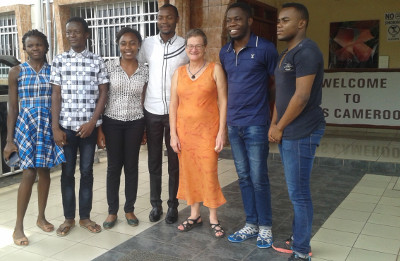
Welcome
Welcome to AIMS Cameroon
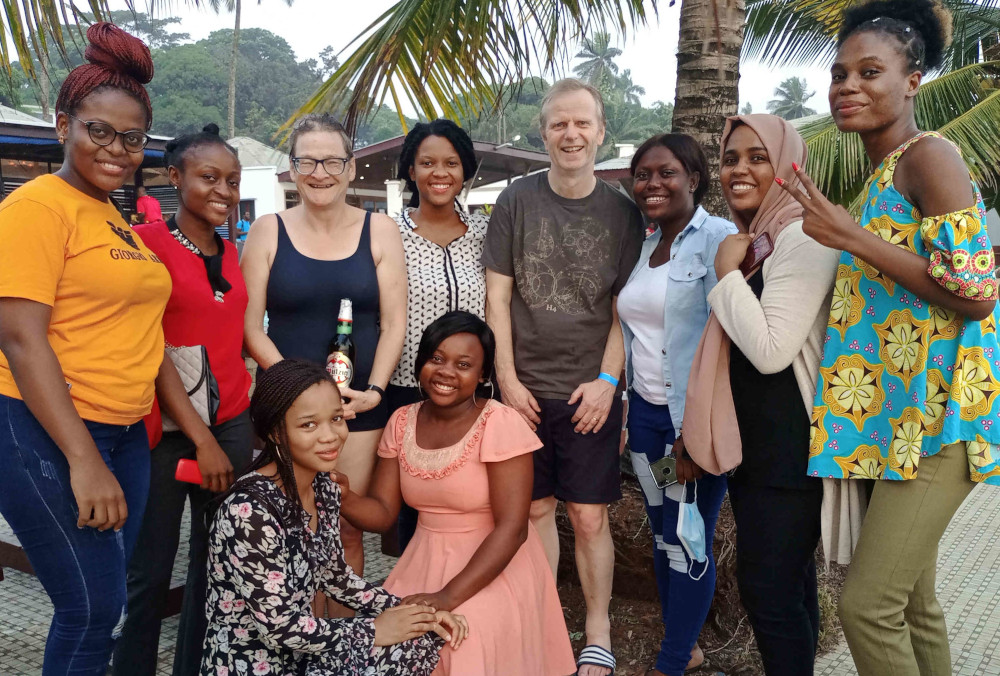
Relaxing
Cameroon 2022: end of block.
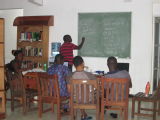
Friday night, AIMS Ghana
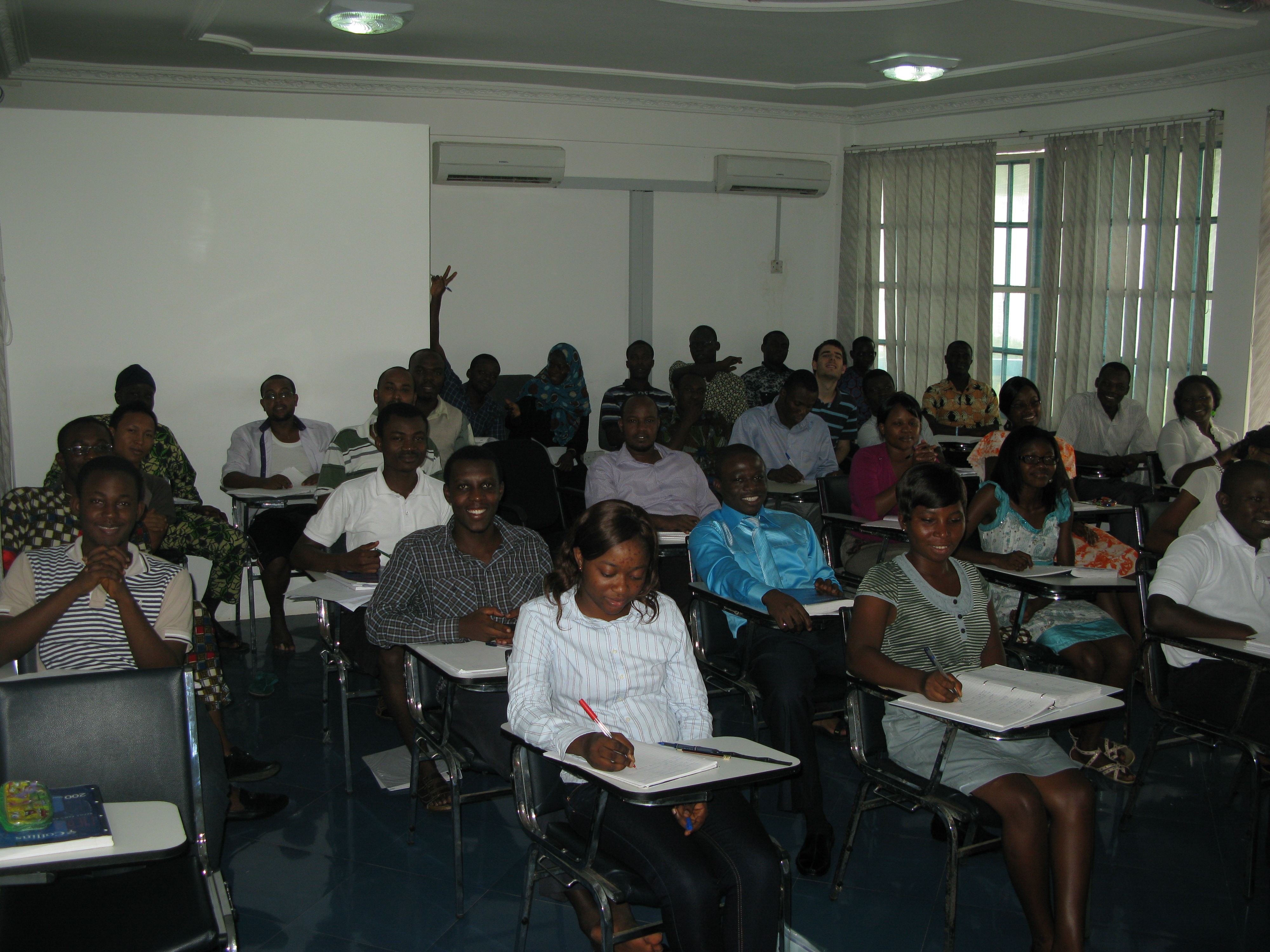
Lecture room, AIMS Ghana
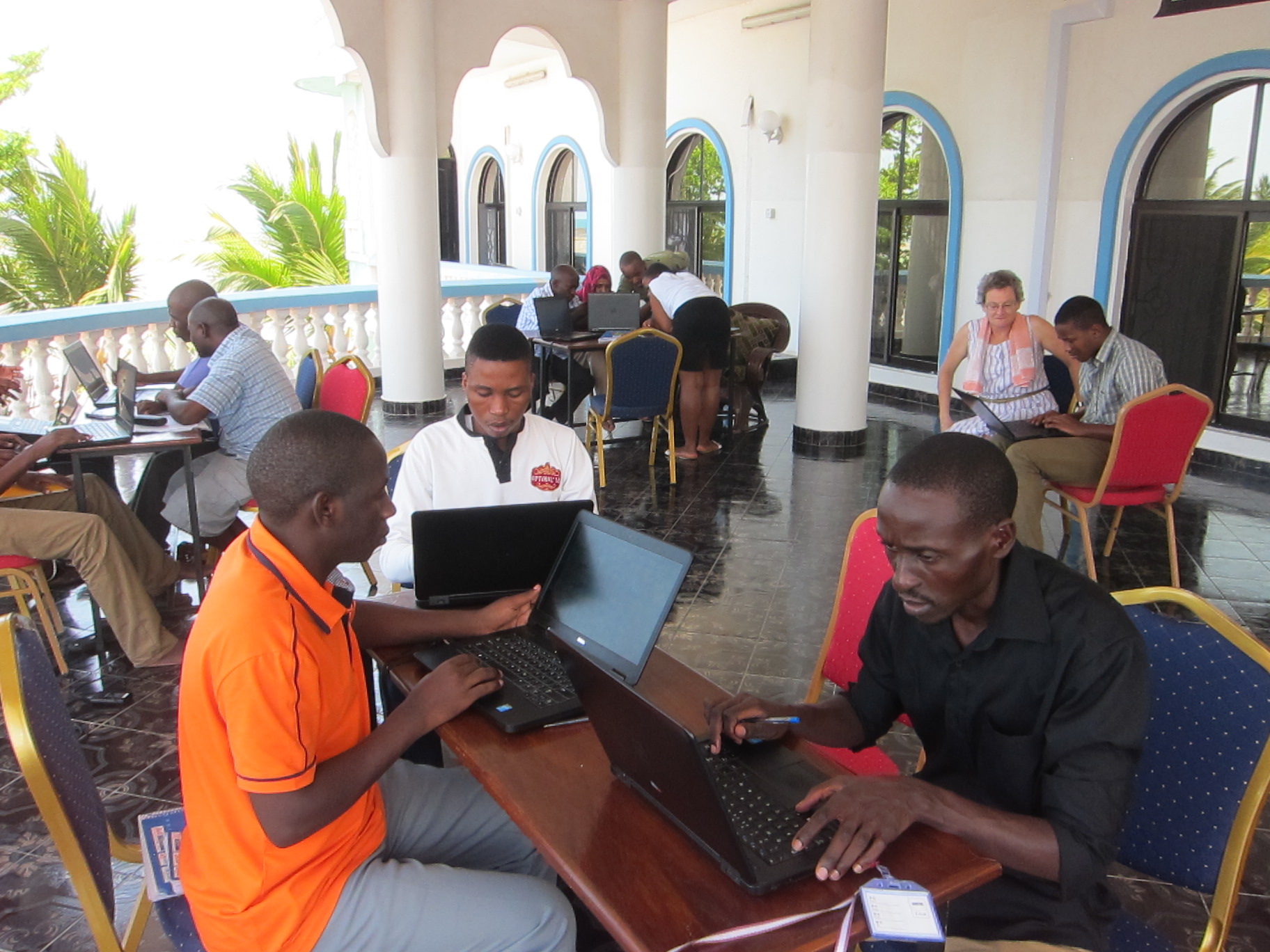
Extramural (!) work, AIMS Tanzania
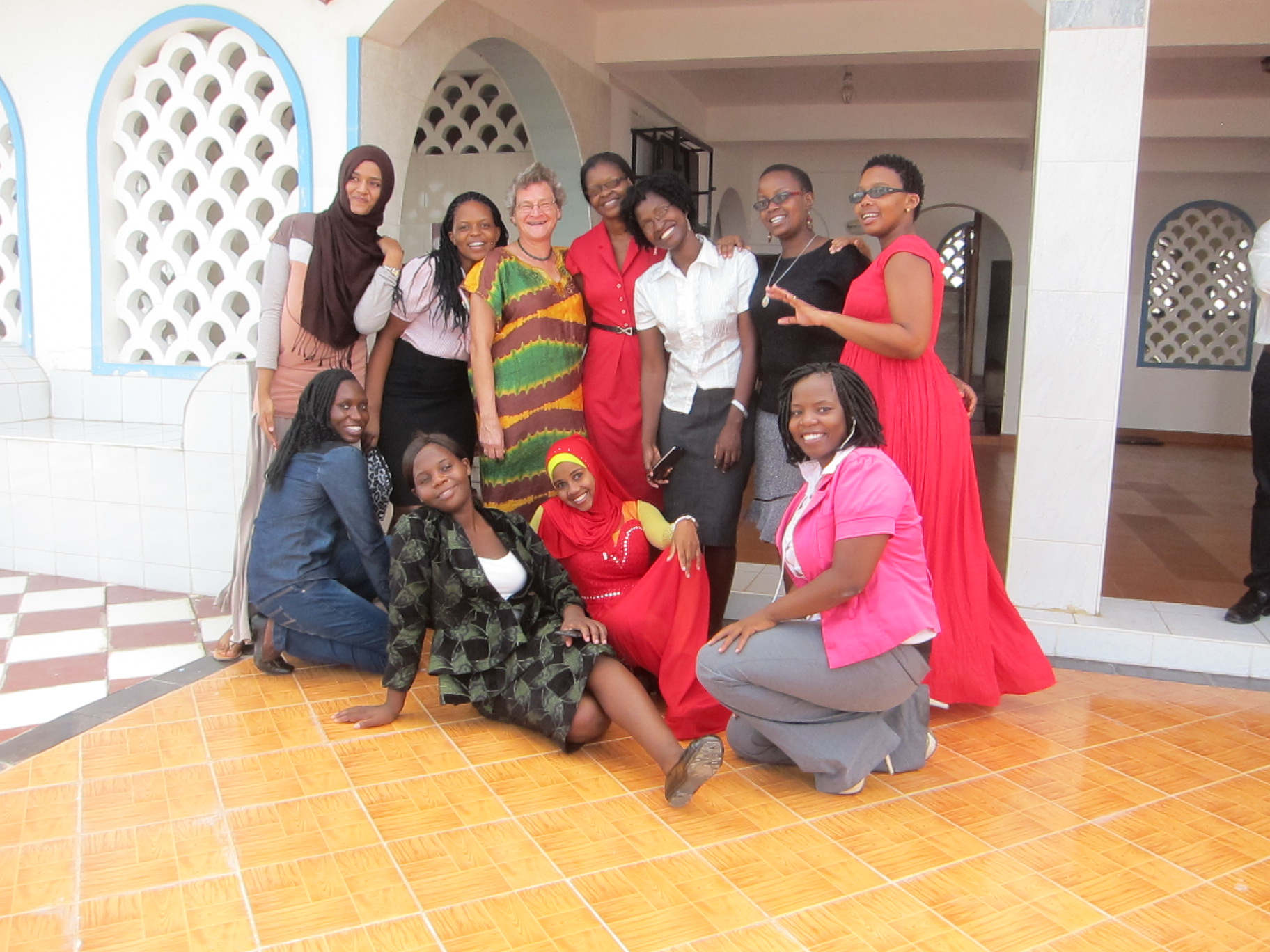
AIMS Tanzania, 2015
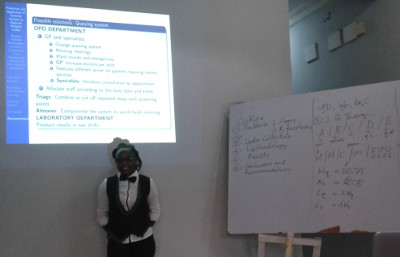
AIMS Cameron Hospital queue study

AIMS Cameroon 2019: Free afternoon
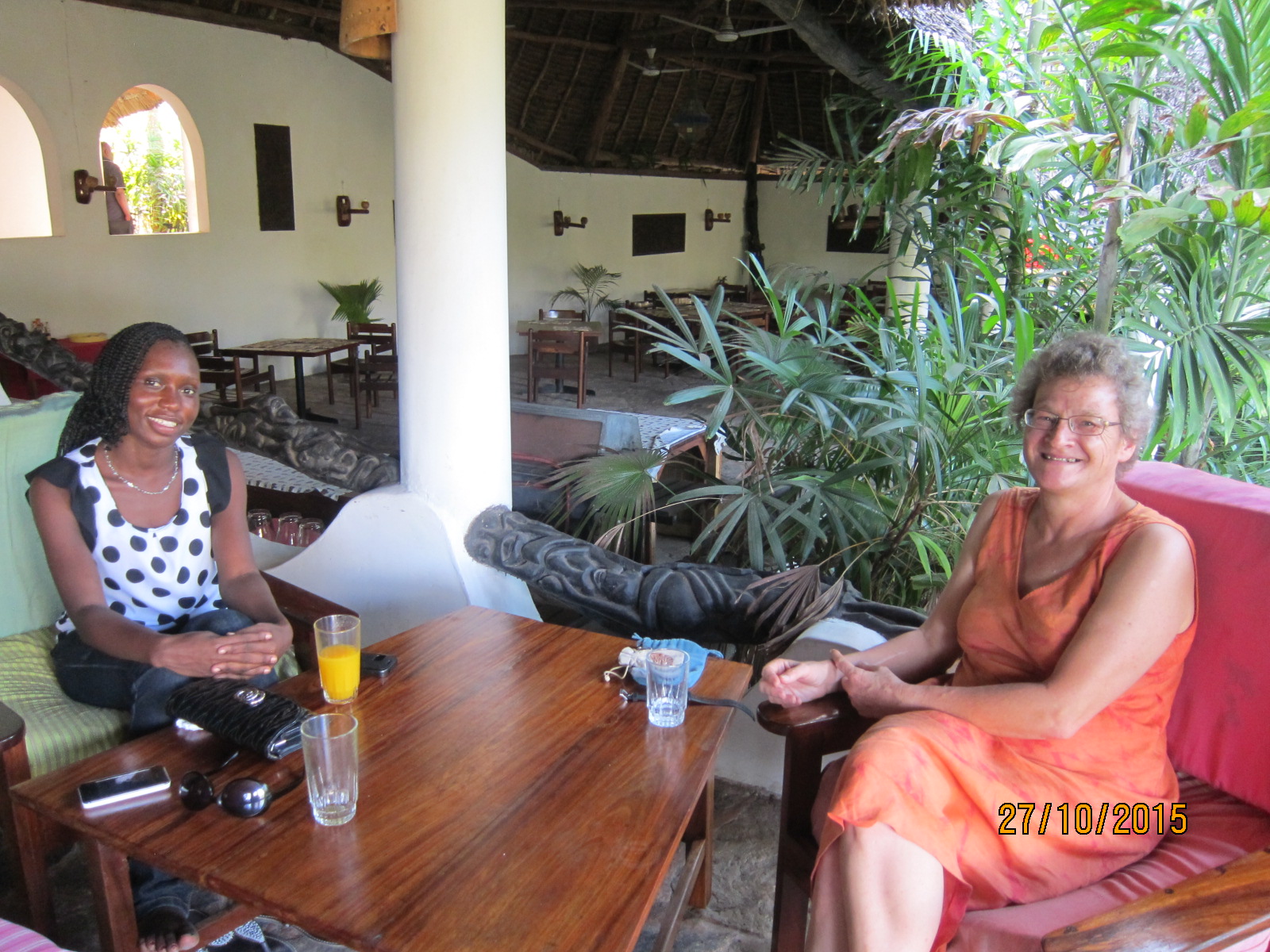
AIMS Tanzania, alternative office
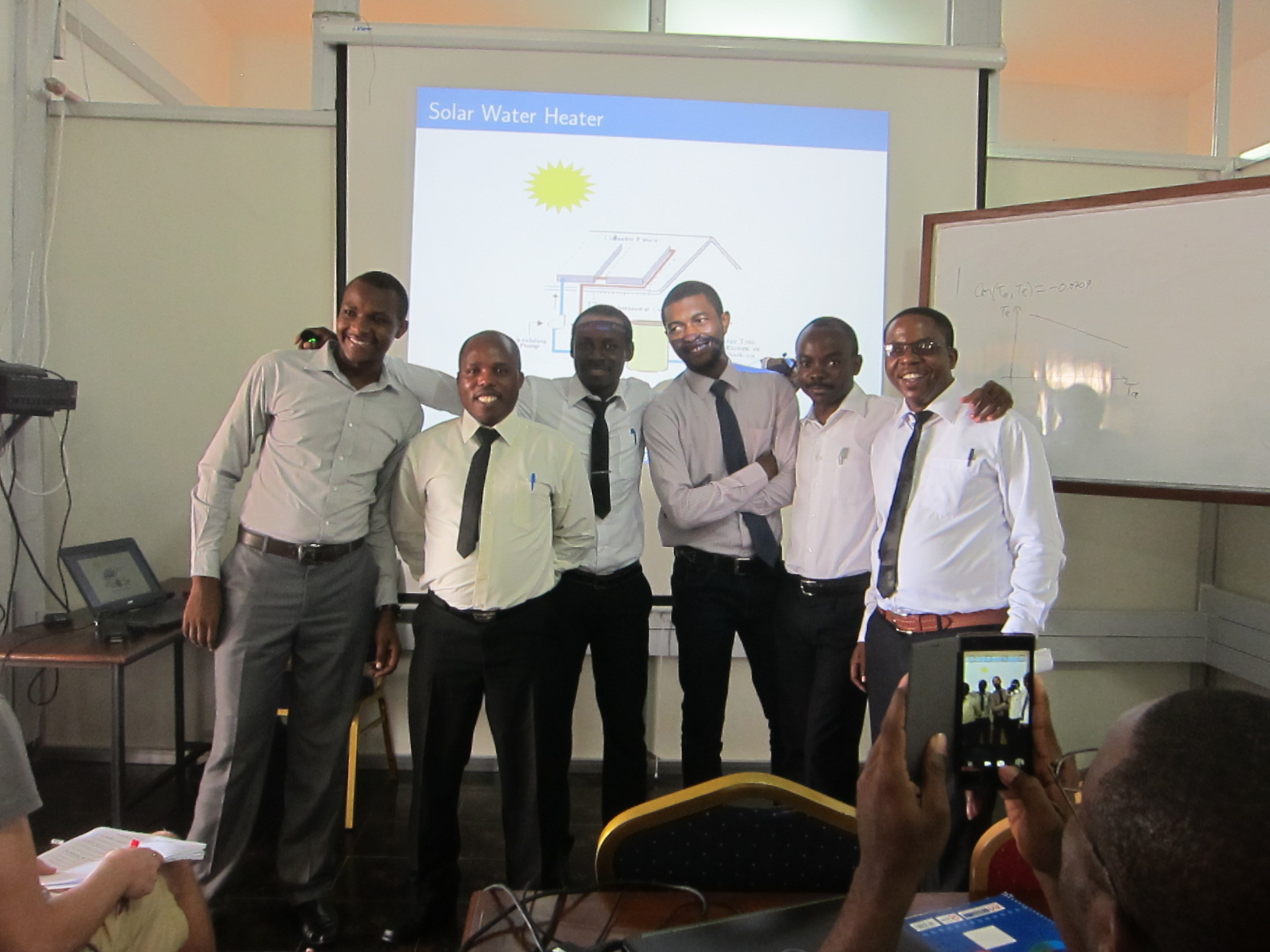
AIMS Tanzania: project presentation
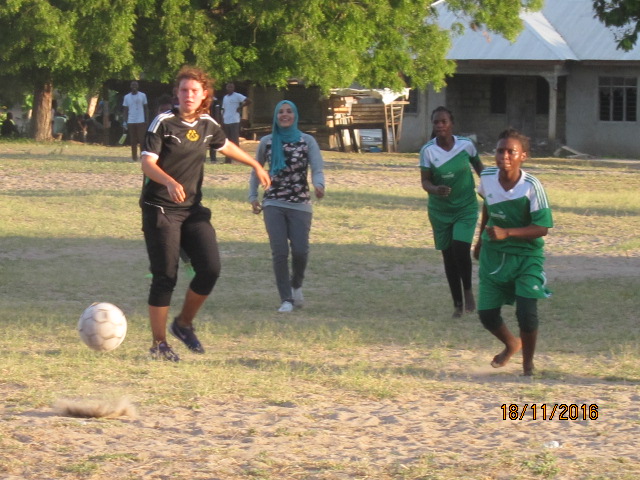
AIMS Tanzania: football
